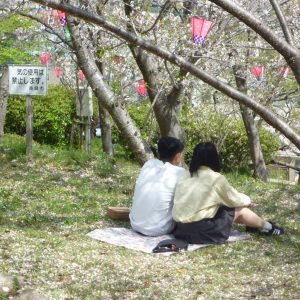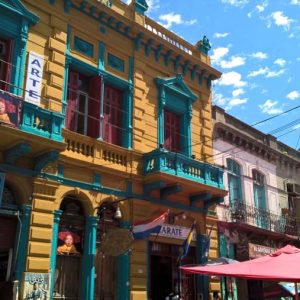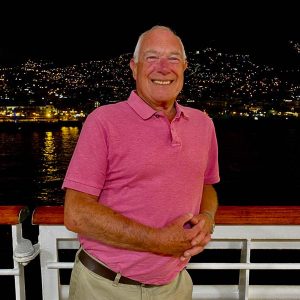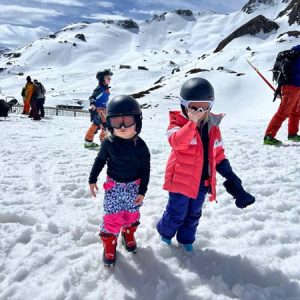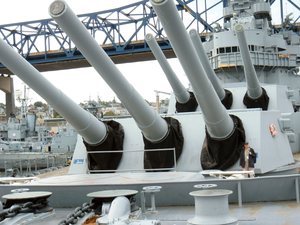 I have been interested in political, and particularly military, history since childhood. In 1990 I discovered by chance that there was a company that specialised in Battlefield Tours, having previously never dreamed that such holidays were available. Since then I have taken over 30 Battlefield Tour Holidays with this company, now called Holts Tours ranging from Roman times to World War II, and just about every period in between.
I have been interested in political, and particularly military, history since childhood. In 1990 I discovered by chance that there was a company that specialised in Battlefield Tours, having previously never dreamed that such holidays were available. Since then I have taken over 30 Battlefield Tour Holidays with this company, now called Holts Tours ranging from Roman times to World War II, and just about every period in between.
The tours are accompanied by a guide, an ex-military officer, and sometimes by an expert; I have been on several tours with the late Professor Richard Holmes (who had a BBC TV series). The tours stay in good hotels, and are either full or half board; if the latter, the Tour always stops somewhere where you can get whatever type of lunch you want.
Another feature of these tours is that you are guaranteed to have something in common with your fellow travellers; I have never had any problem making friends, and these days often meet someone I have travelled with before.
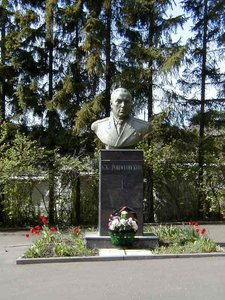 Although I have fond memories of all the trips I have been on, without doubt my favourite is ‘The Great Patriotic War’ (the name the Russians give to World War II). The Eastern (Russian) Front was arguably the most important in terms of defeating the German Army, although at a cost of some 20 million Russian (military and civilian) casualties.
Although I have fond memories of all the trips I have been on, without doubt my favourite is ‘The Great Patriotic War’ (the name the Russians give to World War II). The Eastern (Russian) Front was arguably the most important in terms of defeating the German Army, although at a cost of some 20 million Russian (military and civilian) casualties.
This tour began and ended in Moscow, the scene of a critical Russian defence and counter-attack in 1941. We visited a number of museums in Moscow, particularly the Armed Forces Museum, which covers the entire history of the Russian Armed Forces, and features (amongst other things) an armoured train and the remains of Gary Power’s U-2 spy plane. The main hall has a panorama of the Russian victory parade in Red Square with hundreds of German army banners being thrown down at the foot of Lenin’s Tomb – I believe this should be a compulsory visit for all future German army officers. However, there were two particular highlights to our Moscow visits.
F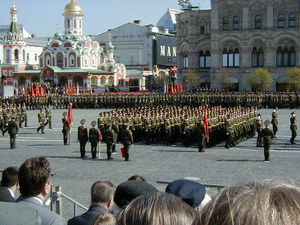 irst we went to the former Red Army Tank Proving Ground at Kubinka, which has a museum with over 400 tanks from all nations, although access for visitors is very restricted. Needless to say they have a magnificent collection of German World War II tanks, and an extremely rare collection of Japanese World War II tanks (captured in Manchuria in 1945).
irst we went to the former Red Army Tank Proving Ground at Kubinka, which has a museum with over 400 tanks from all nations, although access for visitors is very restricted. Needless to say they have a magnificent collection of German World War II tanks, and an extremely rare collection of Japanese World War II tanks (captured in Manchuria in 1945).
Second, we were able to attend the Victory (former May) Day Parade in Red Square, at which President Putin reviews his Armed Forces. Access to this event was severely restricted, and security was very tight; only some 5,000 attended, and apart from diplomats we were probably the only foreign contingent.
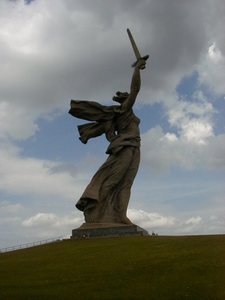 We then flew to Stalingrad (now Volgograd), the scene of intense fighting in 1942, leading to the surrender of the German 6th Army in early 1943. We stayed in a hotel on the main square, which is about 10 minutes’ walk from the Volga, with the final front line about midway between. Elsewhere in the city, this front line is marked by T-34 Tank Turrets on pedestals; it is amazing how little ground the Russians held at the height of the battle.
We then flew to Stalingrad (now Volgograd), the scene of intense fighting in 1942, leading to the surrender of the German 6th Army in early 1943. We stayed in a hotel on the main square, which is about 10 minutes’ walk from the Volga, with the final front line about midway between. Elsewhere in the city, this front line is marked by T-34 Tank Turrets on pedestals; it is amazing how little ground the Russians held at the height of the battle.
We also saw all the major sights of the battle, including the Grain Elevator, Sergeant Pavlov’s House, the Tractor Factory, and an excellent museum which contains the State Sword donated by Britain to commemorate the battle. However the most impressive sight is the Mamaev Kurgan, the scene of some of the most bitter fighting. This has a huge statue to ‘Mother Russia’, a memorial with an Eternal Flame, and (amongst many others) the graves of Marshal Chuikov (the Russian Commander in Stalingrad itself), and the famous Sniper Vasily Zaytsev (see the film ‘Enemy at the Gates’).
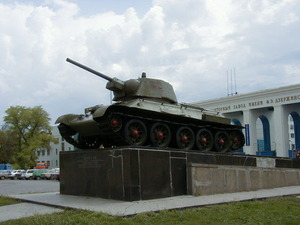 Finally we travelled overnight by train to (and from) Kursk, the scene of the last German offensive in Russia in 1943 (Operation Citadel). We visited the scenes of the heaviest fighting, around Ponyri in the north of the Kursk Salient, where Marshal Rokossovsky’s Command Bunker is preserved, and Prokorovkha in the south, where the largest tank battle the world has ever seen was fought.
Finally we travelled overnight by train to (and from) Kursk, the scene of the last German offensive in Russia in 1943 (Operation Citadel). We visited the scenes of the heaviest fighting, around Ponyri in the north of the Kursk Salient, where Marshal Rokossovsky’s Command Bunker is preserved, and Prokorovkha in the south, where the largest tank battle the world has ever seen was fought.
We were accompanied by a Russian veteran, who was wounded in the fighting near Prokorovkha when his anti-tank gun was hit; he says he can still remember flying through the air! He holds the ‘Hero of the Soviet Union’ Medal – the equivalent of the Victoria Cross.
Overall a fantastic tour!
For more information visit www.holts.co.uk

